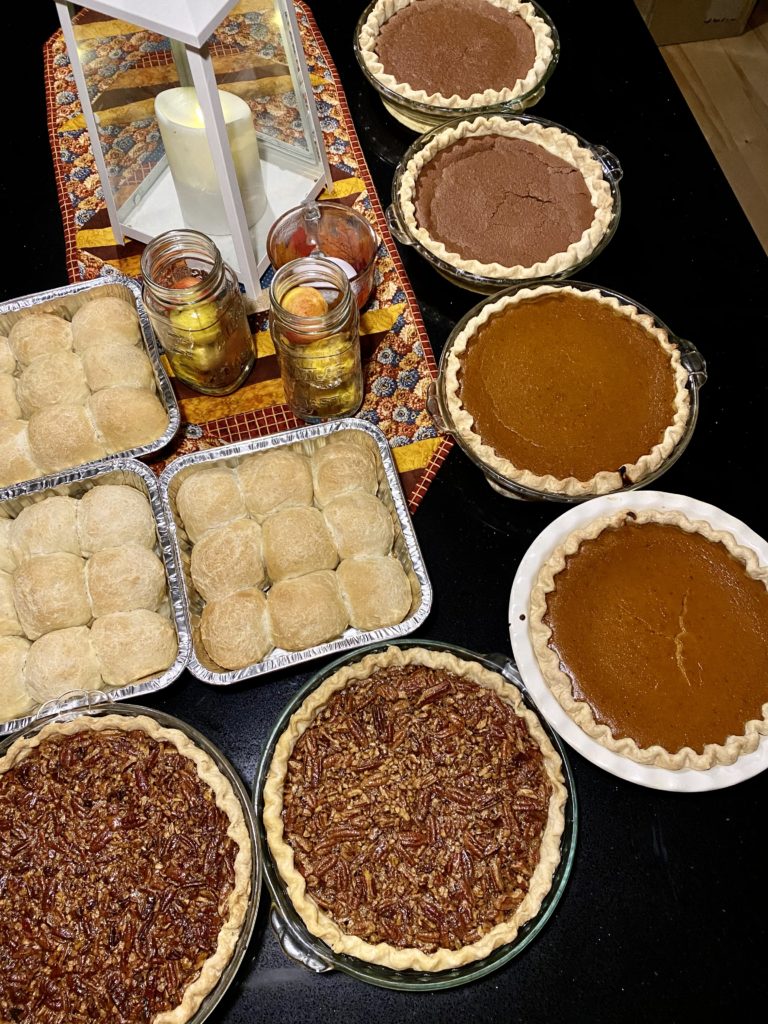Part 4.
I have the joy of knowing lots of mamas at all points along the journey of Christian motherhood. It is glorious not to walk this path alone. And I just recently had a face to face conversation on a sunny porch, glass of hibiscus iced tea in hand, with a newer friend – where we got to talk about nitty gritty things. Like bringing babies and toddlers to church. Like learning the ropes of motherhood by jumping into the trench and figuring it out for our own family as we go along. Like asking hard questions and not avoiding confrontation.
This is what it is to be part of Christ’s body. To make friends in a local church and community. To learn from one another. To sharpen one another.
One thing this sunny porch conversation brought to my mind is that we never know who is listening or who is watching or who is reading. Here at JoyfulDomesticity you might think that I write for blog readers or for a community of homeschool mamas or something. Awkward or not, I actually write for myself. I process thoughts through writing. When I struggle with something, I write about it as I work through it. Therapy for the price of a web domain, I guess.
I didn’t write this as a step-by-step, how-to program.
I didn’t write this to cast judgment on any family who does it differently.
I did write this to remind myself why I believe what I believe.
I did write this to remind myself why I do what I do.
I did write this to refresh my tired mom-brain on what convictions my family holds and maintains and pursues.
So I wrote it for me. I pretty much always do, because this just happens to be my method of journaling these days. And if someone else (you know, one of my five blog-readers) reads it, maybe they can chew and spit and find some bits of nourishment from my own experiences. Or maybe not. Either way, it’s okay. I wrote this for me, because fourteen years into motherhood, I’m tired. And the juggling game doesn’t get easier, it just gets different.
To be honest, one of the main reasons I wrote this Little Saints series was because I am in a hard season of worship training with my youngest son. In a small church. Where I’ve never trained a baby before, because we are pretty new here (it’s been exactly a year now, so it’s finally starting to feel like we belong). A few weeks ago, my parents and my husband were all out of town, so I was alone in the pew with my five kids. And I was reminded of the many, many Sundays in the last fourteen years where that has been a reality. I don’t always single-parent, but I do 95% of the training and disciplining and discipling here. And everyone goes through seasons or days or moments where that is true, even if I do get to climb into bed beside my husband every night. And even if my husband is sitting in the pew nearby, I am the one training the children. During the seasons where we have attended church with my parents, let me also clarify that they are not additional parents. If you are a parent, you probably know what I mean, but grandparent-detox is a reality. Our big kids are allowed to sit beside grandparents in the pew once they are actually self-controlled, self-motivated worshipers. The little ones? Nope, they stay with Mommy unless both Mommy and Daddy are up serving in the service (which does happen… and then I just cringe the whole time I’m playing piano because I can hear the toddler fussing at grandparents, and being taken out into the foyer but not responding as he would for me).
If you are exhausted from parenting, you’re not alone.
If you grow weary in this work, you’re in the trench with me.
I don’t have this figured out, I don’t have it all together.
I speak and write to remind myself of true, good, beautiful, worthy, excellent things. Like not growing weary. Like finding rest in the Lord. Like being faithful anyway. Like remembering that this is my calling.
But here’s another question that came up for me this week. How do we parent faithfully and consistently without sliding into legalism? (Isn’t that an interesting question?)
There are two general definitions of the term “legalism,” so let me just share a thought or two about them. The first definition is: excessive adherence to law or formula. And the second is: dependence on moral law rather than on personal religious faith.
The first one is rather subjective because “excessive” can definitely be interpreted differently person to person. But the second is what I think I was asked about recently. And it got me thinking… which of course makes me now want to process the thoughts through writing.
When I was a child, we attended a non-denominational, independent Bible church in northern California. We were some of the homeschoolers there, although we were some of the few that did not connect ourselves with Bill Gothard and ATI. (Google that if you want, or if you dare.) Many people we knew wore dresses because that’s what good Christians do. And they didn’t cut their hair or wear makeup because good Christian women wouldn’t adorn themselves that way. My mother and I wore dresses a lot because we liked to, but not because we had to. My mother and I had long hair because we thought it was feminine and beautiful. My mom wore jeans and makeup, I wore a swimsuit to the pool and a leotard to ballet. We were not nearly as conservative as a lot of people in the conservative Christian homeschooling community we rubbed elbows with… largely because we did not act or dress a certain way in order to check off certain boxes, or to adhere to a particular system of man, or to earn God’s favor. We acted and dressed in ways that we thought would honor the Lord, because we loved Him.
When I was about eleven years old, we had our first connections with Douglas Wilson (gasp, shock, I know, I know; he also baptized me when I was 12 and was my pastor for my teenage years… I love him and respect him and know him personally… so there’s that). The CREC was not yet a thing, but it is now. And I know his name and that denomination come with a lot of baggage. So do many, many people and things and places. Some of which are true. Some of which aren’t. Lots of which I won’t touch with a ten foot pole because I won’t engage in hearsay or gossip.
But back to my personal experiences and story as I process through this question of what is legalism.
Christian liberty was being worked through as a way to combat things like legalism when we were making friends with the Wilsons and dozens of other families in their community. Christian liberty was very much a thing that was on the newer side, a little bit of a buzzword, a little bit edgy. And as with anything edgy, buzzy, or new, it takes some time and work and practice and iteration to shake out. Christian liberty with things like clothing, makeup, careers, education, alcohol, playing cards, dancing… yep, these were things that we talked about a lot and worked through in community for the majority of my teenagehood. Which translates into the reality that it was the adults working through those things, and I was listening in and learning from the edges. I knew the terms. I saw examples of the ditches. And for the last 20+ years, this has continued to be something I offer up to the Lord and seek His guidance & grace for. If legalism is the opposite of liberty, especially when it comes to theology and religious practice, then these are honestly two ditches which we want to avoid. We want to walk in grace and freedom and faithfulness – balanced, rather than falling into a ditch on one hand or the other.
So when someone asks how I know that I am parenting without legalism, my first thought needs to be a heart-check. Because only by the grace of God can I parent with faithfulness, without falling into one ditch or another. And here is what I have been pondering the last couple of days in regarding to this idea of bringing little saints into the worship service, and prioritizing discipling and disciplining them in that: I do not parent in the pew the way I do in order to impress others or earn God’s favor. I do not parent in the pew the way I do in order to check off boxes of adherence to a particular method or law. That would absolutely be slipping into the legalism ditch.
I parent in the pew the way I do because I believe in the love and grace of God, and this compels me to bring my children right along with me in joy to the service and worship of Him. My parenting is coming out of faith and joy and conviction – not out of fear or coercion.
Obedience is not automatically legalistic.
Obedience in faithfulness and joy is a natural outworking of faith by God’s grace. But it does take training.
I guess, like with so many things, it comes back to the idea of principles versus methods. Prescribing methods easily slips into legalism. Promoting principles shares freedom.
The principle I hold to in regard to little saints is this: do not bar them from worship. I believe it is a biblical principle that children of Christians ought to worship with their local body of Christ.
But the methods I described in previous posts are my own trial and error experiences, and I offer them simply as anecdotes in case anybody ever reads them and might find some encouragement or fresh ideas. Chew and spit, please. As I’ve said before, I have only done this five times over fourteen years. I’ve been watching people do this since I was about eleven, sitting with other moms when they needed assistance in a pew, reading about the trial & error of other families, seeking to learn & iterate & grow. But I can tell you this: I am seeing God bring fruit.
And when you taste delicious strawberries, don’t you just want to call your friends over for some fresh jam or strawberry shortcake?! I know I do. I don’t want to hoard the fruit. If you don’t like strawberries, you don’t have to eat it. But I will want to offer it anyway. I would feel selfish if I didn’t offer to share the fruit I see God bringing & blessing from the seeds I scatter.
I’m so grateful not to walk through motherhood alone. I am thankful for real flesh-and-blood relationships where we can confront one another in love, respond in thoughtful grace, and pursue peace in body life. I am thankful for books and blogs and fellow saints in the pews. I love online community for learning and sharpening and encouraging and exhorting. But there’s nothing like face to face friendship and personal conversation.
This actually connects back to my other recent journaling/blogging series about cultivating community. How can we cultivate community in our own churches, in our own nursery/mother’s rooms, in our little local expressions of Christ’s body? Maybe that will be one of the next things I write about as I “think out loud” here at JoyfulDomesticity. I am currently finishing up “A Meal With Jesus” by Tim Chester, just started “Let the Children Worship” by Jason Helopoulos, and recently read “Humble Roots” by Hannah Anderson. They are all very different books, yet a thread of nurturing community in your local expression of Christ’s body could be pulled through all three.
This post is dedicated to my newish friend, M. xo
So grateful to be shoulder to shoulder with you in motherhood.






